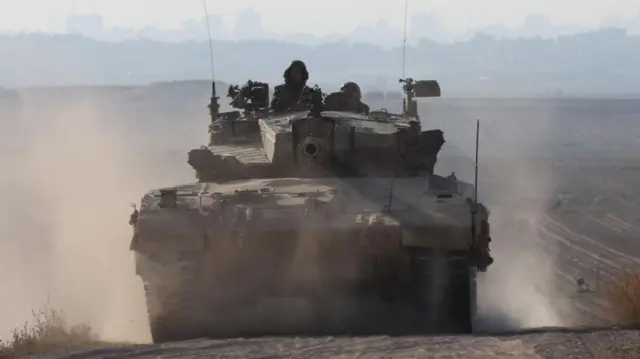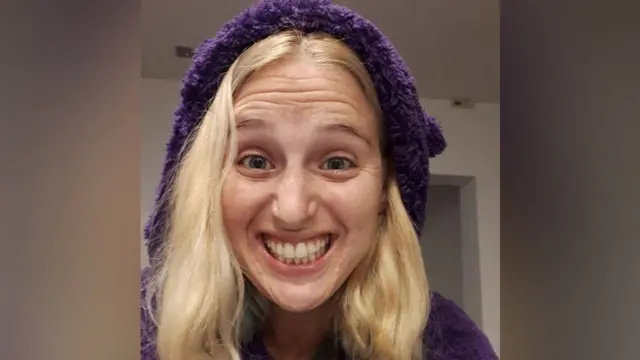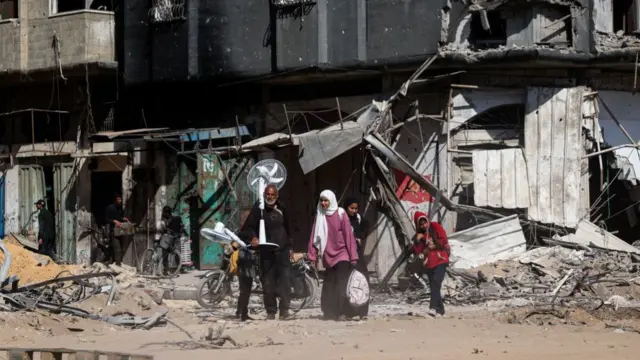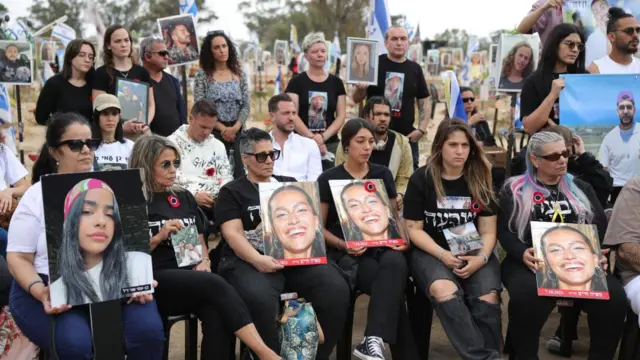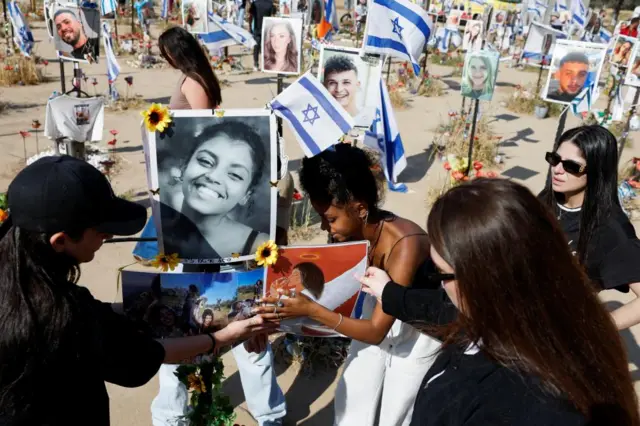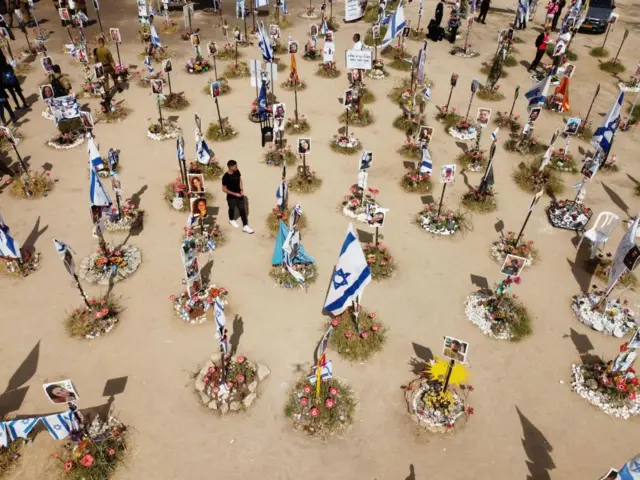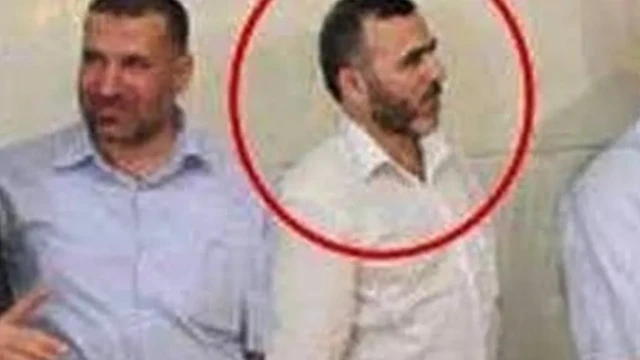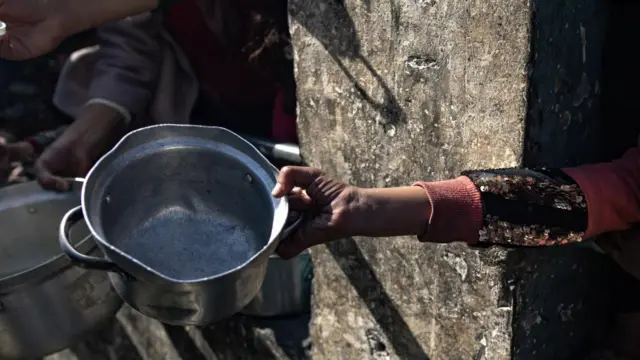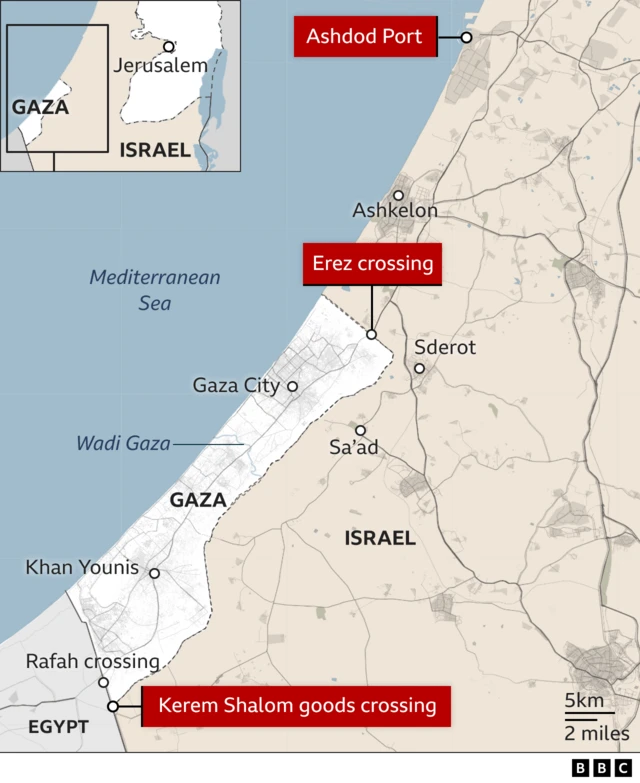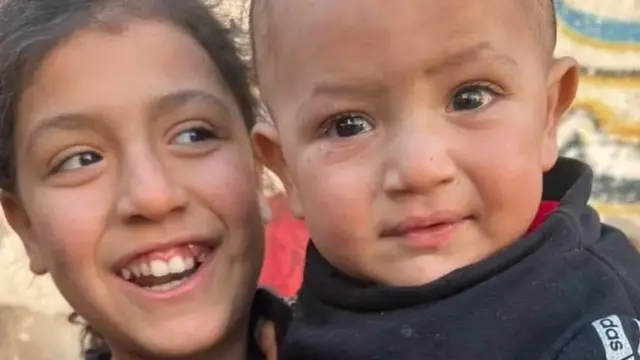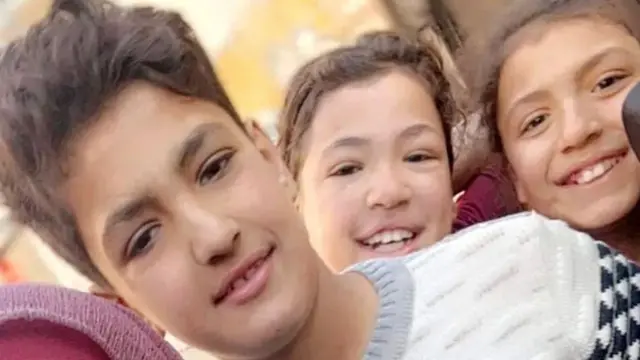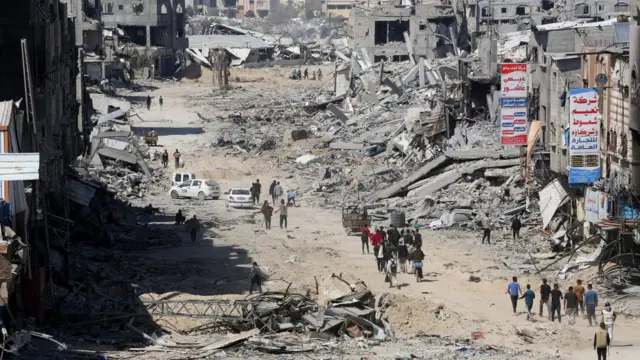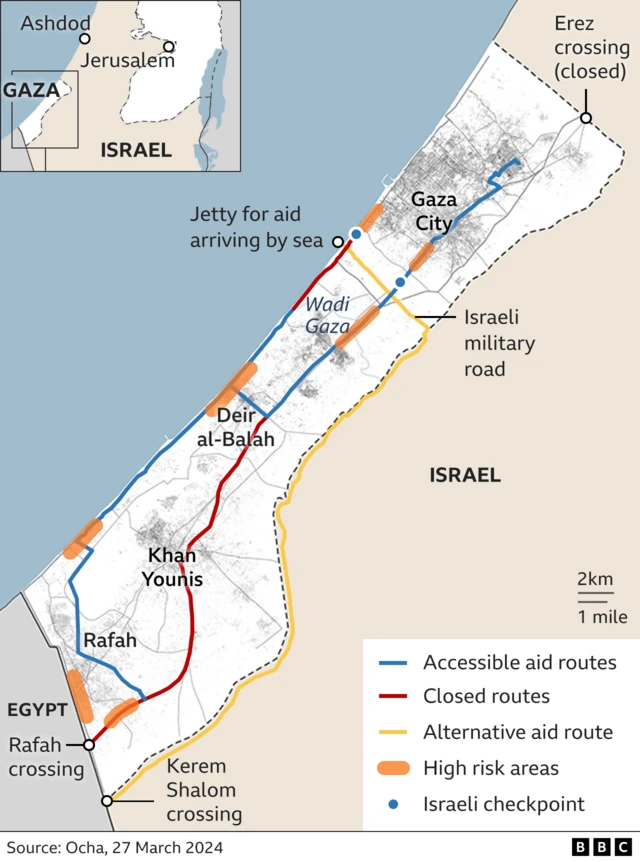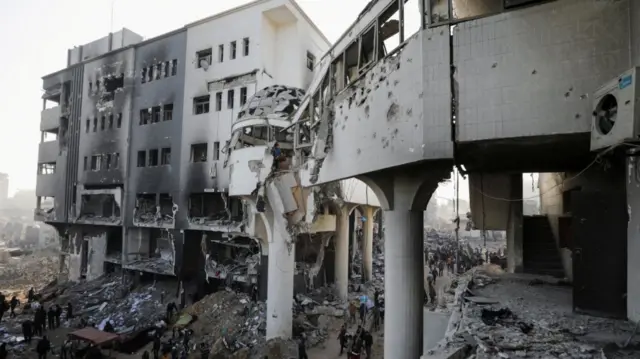We're pausing our live coverage nowpublished at 18:34 BST 7 April 2024
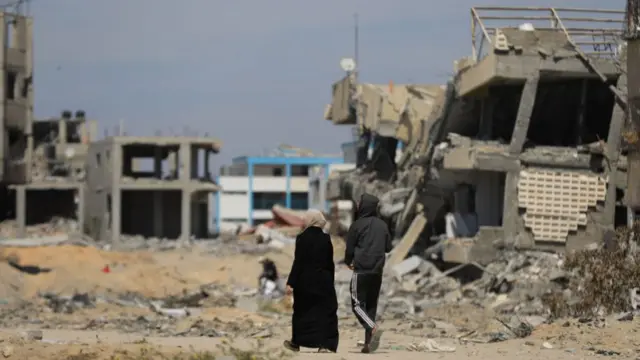 Image source, Getty Images
Image source, Getty ImagesOur coverage is closing now but you can continue reading about the latest updates and analysis about the Israel-Gaza war here:
- Our Middle East editor Jeremy Bowen reflects on six months of conflict: Obstacles to peace seem larger than ever after six months of war
- BBC Verify assesses the evidence behind Israel's key war aim of destroying Hamas: Six months on, how close is Israel to eliminating Hamas?
- Israel says it will open a crossing to northern Gaza, where starvation is most acute, and will also open a major port. But how will the new the Erez and Ashdod Gaza aid routes work?
You can also read more on our Israel-Gaza war page here.
Today's live page was written by Lipika Pelham, Thomas Mackintosh and Jemma Crew, and edited by Alys Davies, Emily McGarvey and Jack Burgess.
